Saturday at noon, crowds gathered at the Federal Plaza in Chicago, decked out in pink and red to partake in Chicago’s first National Period Day Rally. Attendees were able to hear the event’s many notable speakers and march around the plaza while chanting “Period poverty has got to go” and “Menstrual products are alright.” Planned Parenthood, Chicago Now, the U.N. Association of Women, She Votes Illinois, Women’s March Chicago, Indivisible Chicago and Oak Park, the Chicago Period Project and DePaul Women’s Center all co-hosted the landmark event.
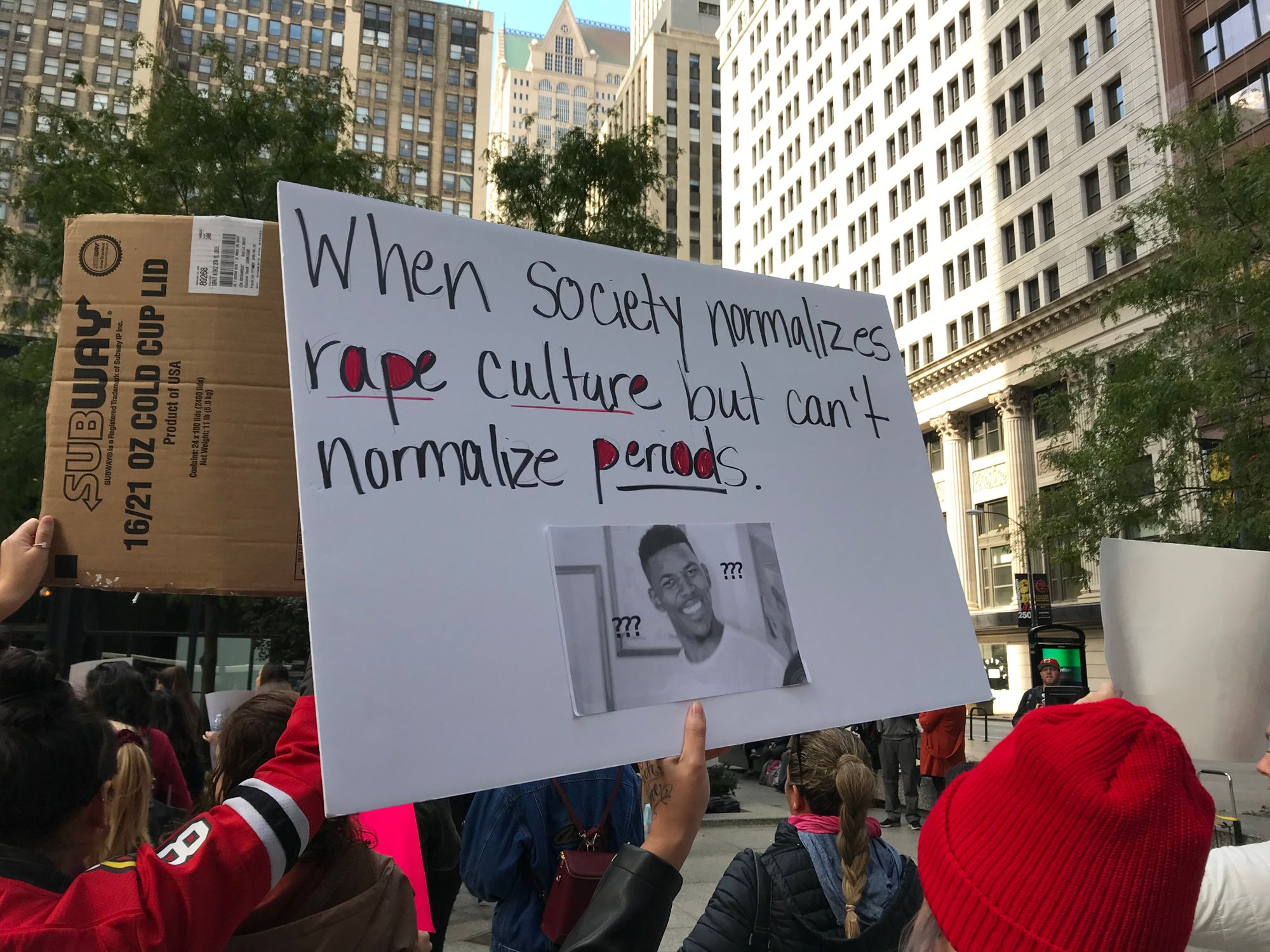
Lead rally coordinator Mary Catherine, a 16-year-old student at Prospect High School, kicked off the day by outlining many of the issues the rally hoped to generate greater awareness for. Catherine noted that 35 U.S. states still impose an income tax on period products and that at least 500 million women and girls worldwide lack adequate resources to manage their periods.
“We all recognize the importance of proper access to menstrual hygiene products,” Catherine said as the crowd cheered her on. “We all believe that every menstruator should be able to use products regardless of their financial situation.”
Cycle Forward, an organization based in Illinois, is currently working to combat period poverty on both a local and international scale. The organization’s founder, Highland Park High School senior Sophie Draluck, spoke at the event, drawing attention to the unique nature of period poverty.
“I want to point out that period poverty is not just another facet of poverty,” Draluck said. “It is a reflection of a society filled with gender inequalities that disempower menstruators, robbing them of their rights to education and opportunity.”
Draluck went on to urge attendees to visit Cycle Forward’s website and to donate what they could to help the cause.
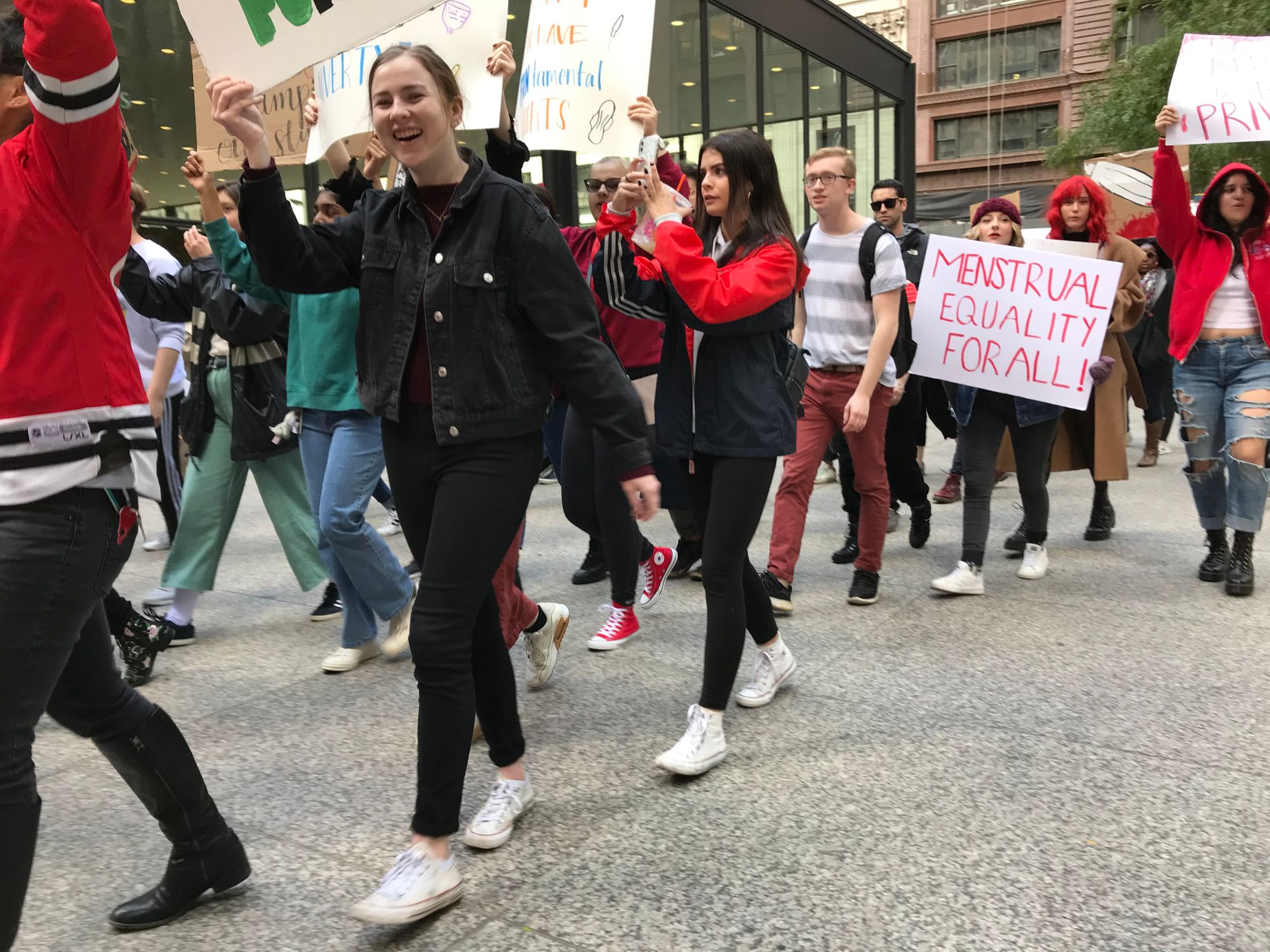
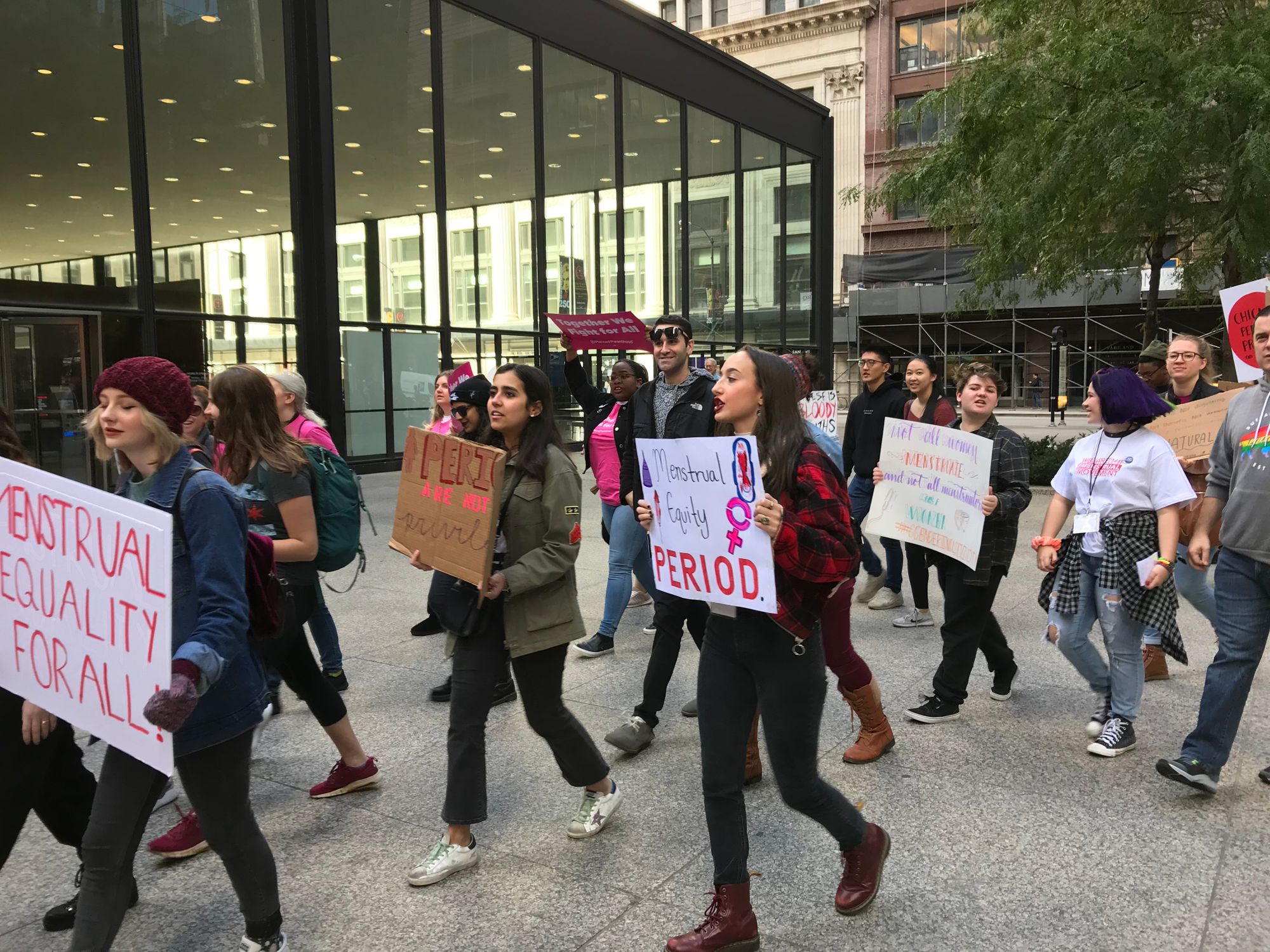
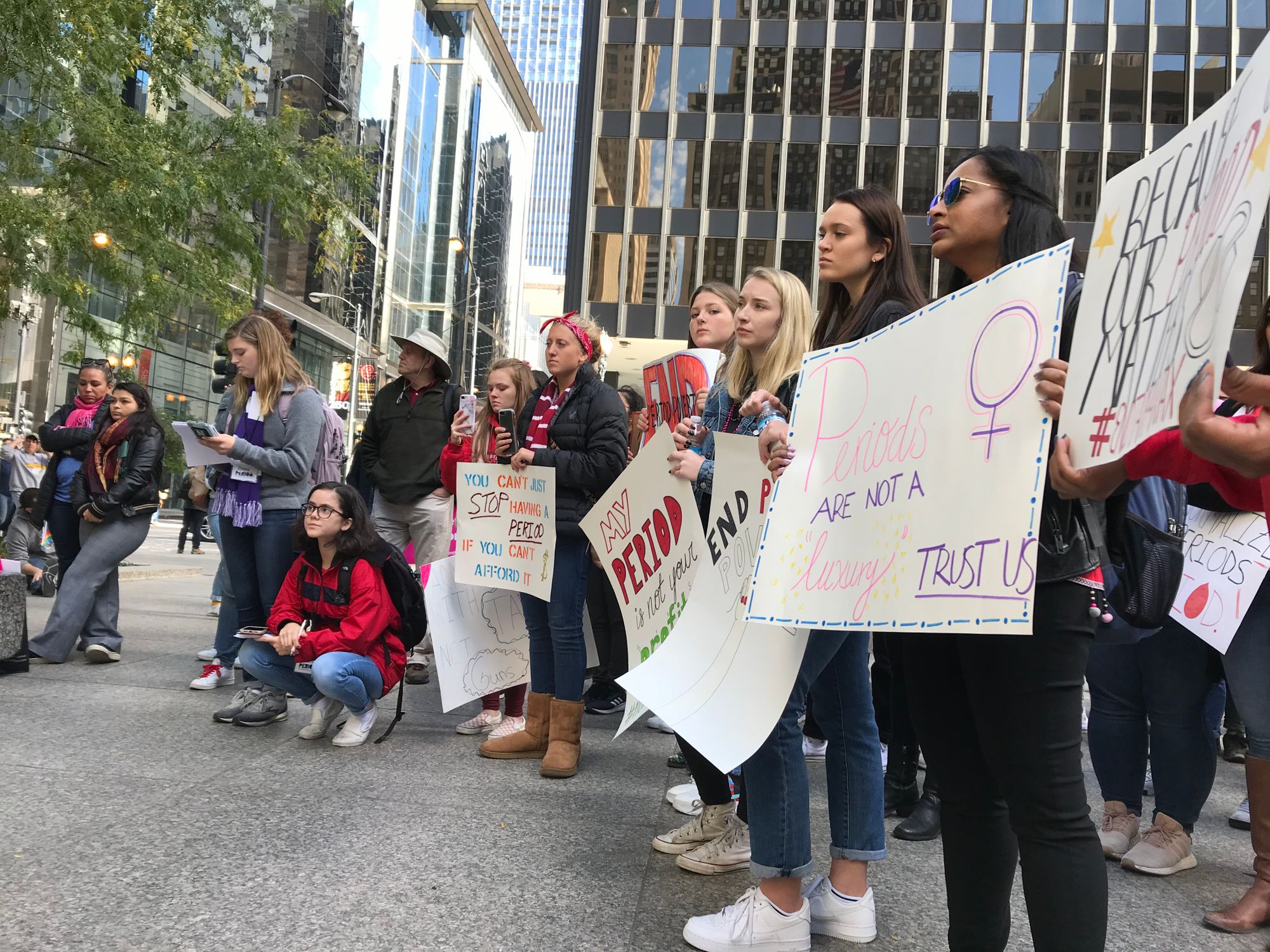
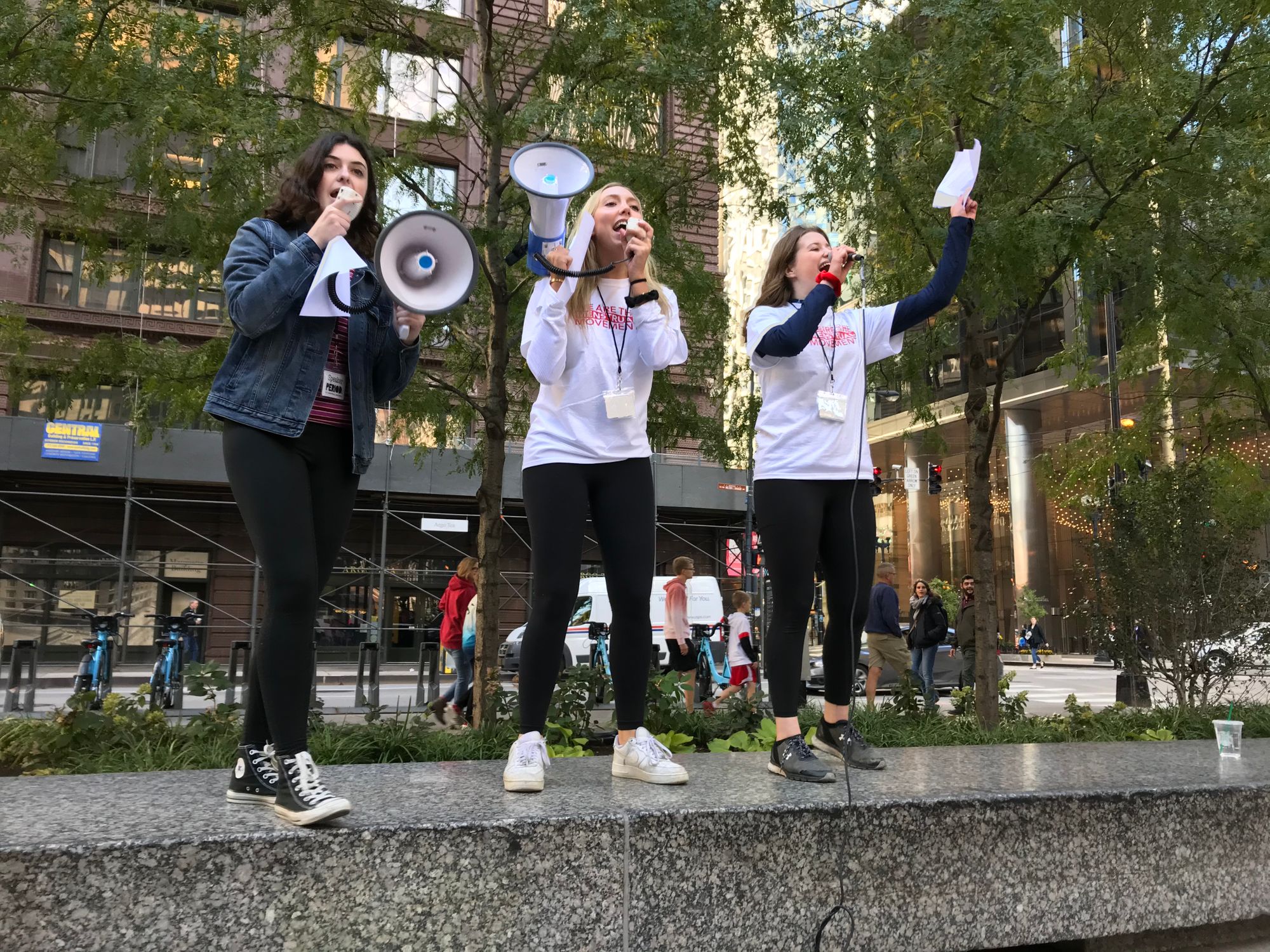
As the afternoon progressed, many other factors of period poverty issues were brought to light. Speaker Riley Reed, an activist and student at DePaul University, addressed the need for more availability of period products.
“Access doesn’t just belong in schools," Reed said. It should belong in prisons, public restrooms and shelters.”
Founder of The Pinta Pride Project, 13-year-old Molly Pinta, acknowledged that this issue does not solely affect female-identifying people. Rather, she said, it impacts all those who menstruate, regardless of gender identity.
“Not all trans men that would like to be are able to be on testosterone, a hormone that will eventually stop them from getting periods,” Pinta said.
The day’s final speaker was Northwestern second-year Liv Glassman, Outreach Chair for Northwestern College Feminists, who recited an original poem titled “Red.” After the event, Glassman discussed the significance she feels the rally holds and the impact she hopes Northwestern College Feminists can bring to campus.
“Just having this event has opened up the conversation and just gets the ideas of menstrual equity and fighting period poverty out there,” Glassman said.
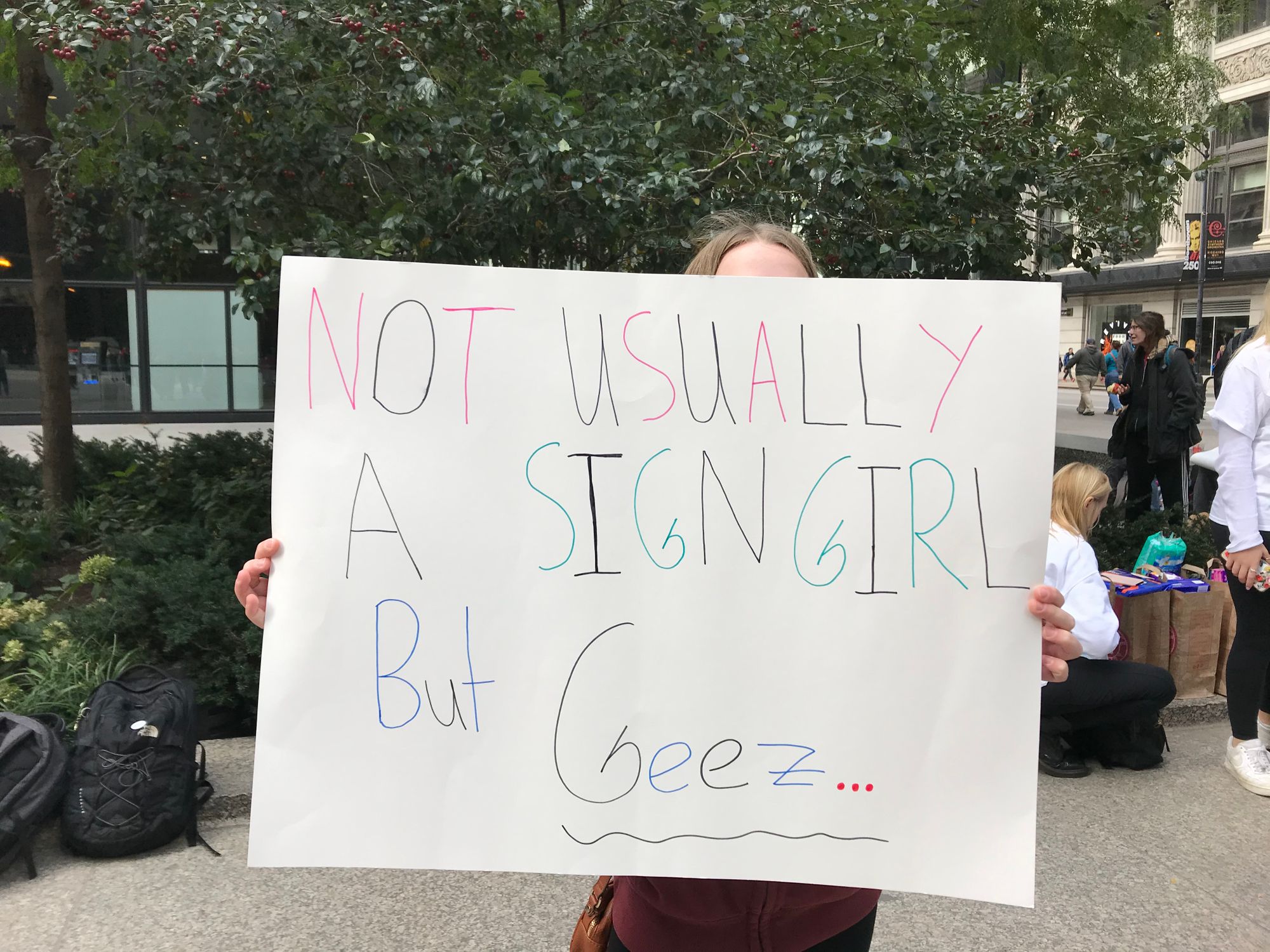
According to Vani Sharma, Prospect High School student and logistics coordinator of the rally, simply talking about the issue is the first step toward change. Sharma spoke on the effects she sees this rally having in the future.
“I think it’s really important to destigmatize the issue” Sharma said.“I think that the more we talk about it the more conversation and change we are initiating.”